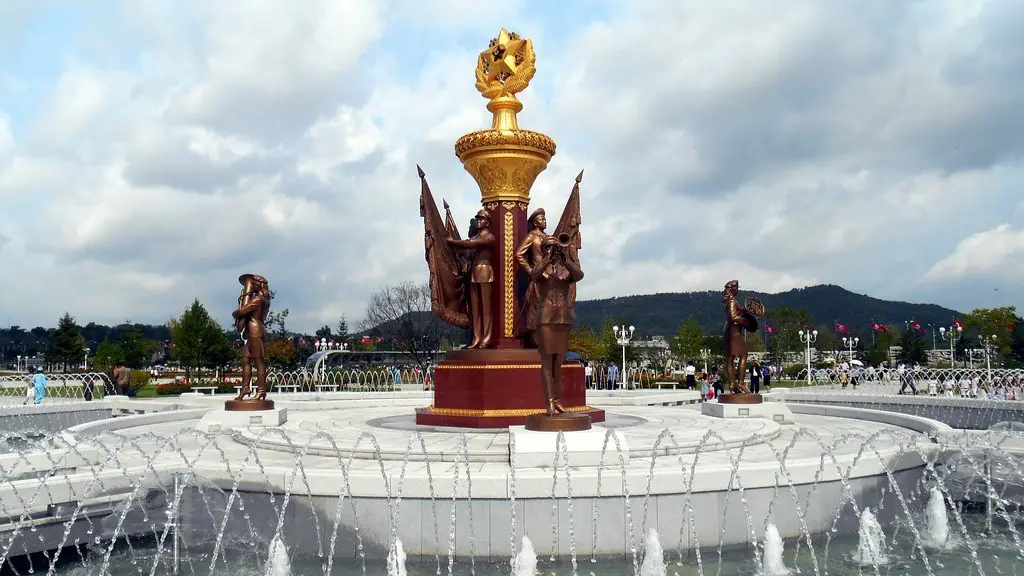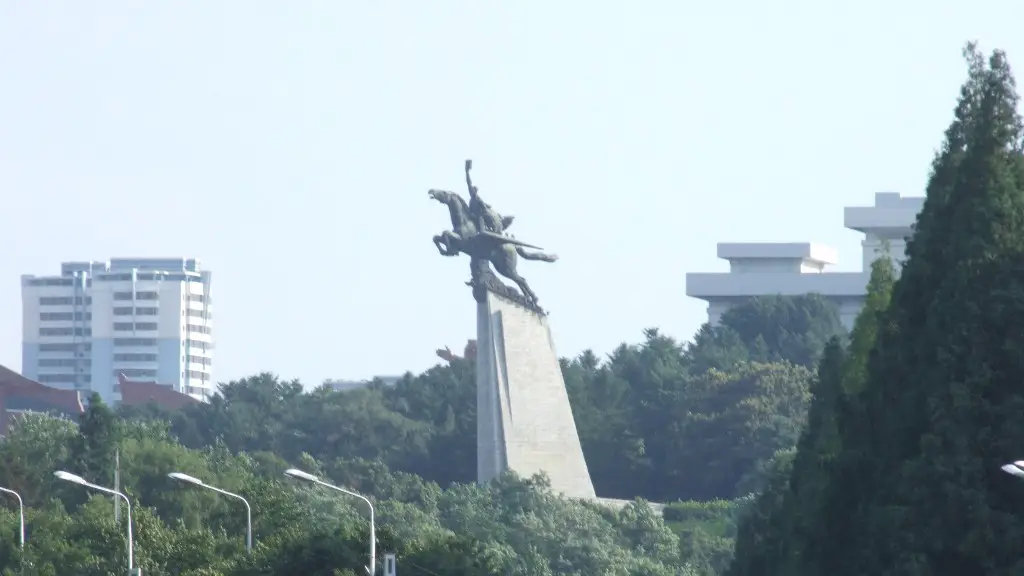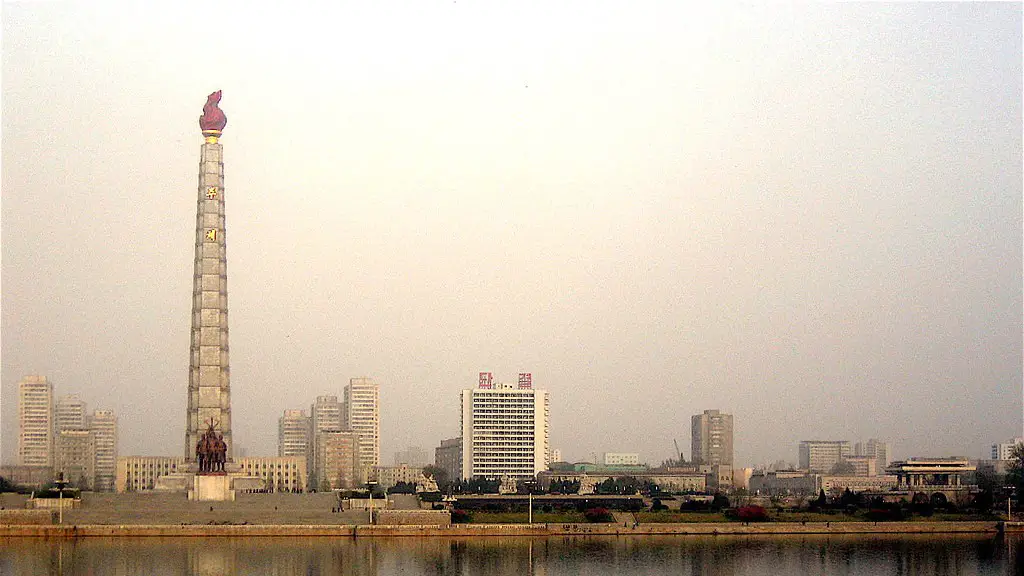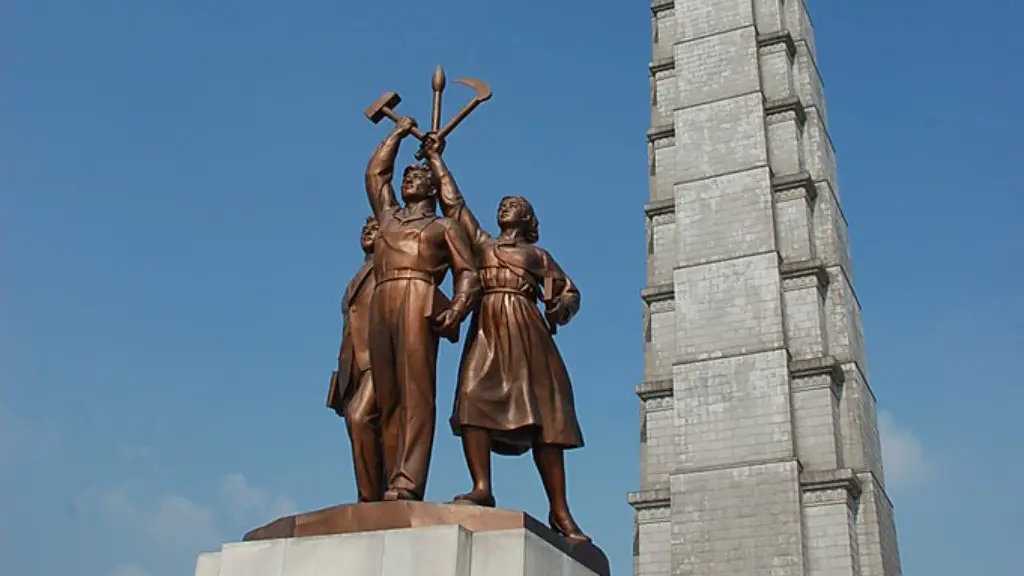The United States of America has, for the most part, been recognized as the world’s superpower for generations. With this distinction, the U.S. has the power to step in, intervene, and enforce sanctions in nations where it sees a threat to world peace. North Korea, led by Kim Jong Un, is a prime example of a country that has been targeted as a threat. But why hasn’t the U.S. taken the extreme measure of nuclear bombing North Korea?
Nuclear weapons are weapons of mass destruction. They are the most powerful and destructive weapons in the world and can only be used in a matter of the gravest consequence. Another component of the use of nuclear weapons is the immense destruction they can cause. In 1945, nuclear bombing Hiroshima and Nagasaki resulted in the death of over 200,000 people and massive destruction of infrastructure.
The U.S. has been actively pushing for international cooperation to eliminate the North Korean nuclear threat for over a decade. The United Nations has imposed numerous sanctions on the country in an effort to get North Korea to halt its nuclear program. China and Russia have also been involved in diplomatic negotiations with the country to secure denuclearization but have been unsuccessful. The U.S. has even attempted to use military threats in order to pressure North Korea, but this too has been met with failure.
In addition, the use of nuclear weapons will not only generate immense destruction in North Korea itself but can also create regional instability – with the possibility of radiation and health threats in the U.S., South Korea, Japan, and other neighboring countries. In short, attacking North Korea with a nuclear weapon could kill millions, if not billions, of people. Therefore, the U.S. has been extremely cautious in evaluating the potential costs and benefits of such action.
The experts suggest that North Korea’s nuclear program has to be curbed through diplomatic negotiations. As of now, North Korea has not demonstrated any real sense of willingness to denuclearize, and even if they do, it is likely to be too incremental and slow. However, analysts believe that a comprehensive package of incentives and threats can act as a deterrent to their nuclear program.
At the same time, the U.S. and its allies must also consider the risk of a nuclear arms race. North Korea is a signatory to the Non-Proliferation Treaty, but it is still actively pursuing nuclear technologies for its own gain. If the U.S. does resort to military intervention, then it could create an environment of distrust between the two countries and encourage other nations to develop their own nuclear arsenal in response.
A nuclear conflict with North Korea could also lead to economic disruption. A full-scale nuclear war could send shock waves through the global economy and create financial chaos. This could further destabilize the region and create more opportunities for countries like China and Russia to assert their influence in the region.
Benefits Of Diplomacy
An effort towards diplomacy is still the best way to tackle the ongoing nuclear crisis with North Korea. A successful diplomatic strategy should emphasize positive incentives and direct communication between the two countries. This would encourage North Korea to take the offer of denuclearization seriously, while also allowing the U.S. to build a strong and sustained relationship with the country.
The U.S. should also consider using economic sanctions as a form of pressure. This would help to isolate the North Korean regime and deprive them of the resources they need to continue their nuclear program. Sanctions would also limit their access to foreign markets and hurt their economic growth.
At the same time, international collaboration is also needed to convince Kim Jong Un of the long-term benefits of denuclearization. Dialogue between the U.S. and other world powers is essential to put across the idea that nuclear disarmament would bring peace, security, and prosperity in the region.
Furthermore, intelligence monitoring is also essential to understand the North Korean government’s actual intentions and its future plans concerning the nuclear program. This will help the U.S. to assess the risk of military provocation and to develop effective strategies accordingly.
In conclusion, the use of military force should be seen not only as a last resort, but also as a long-term strategy to protect the public from the threat of nuclear weapons. U.S. diplomacy should focus on a comprehensive solution to the North Korean nuclear issue, involving careful consideration of the benefits and risks of all potential options.
Risk Of Military Escalation
The use of military force against North Korea could be catastrophic. The U.S. would need to coordinate with South Korea, Japan, and other countries in the region in order to ensure a successful outcome. However, there is a risk that the use of force would escalate into a full-scale war and cause massive loss of life.
The U.S. would also likely face a strong backlash from China, which is viewed as one of North Korea’s main allies. This could lead to a military conflict between the two countries, which could have devastating consequences for the entire world.
The economic consequences of a war with North Korea would be severe. It would put pressure on the U.S. economy, as the U.S. would need to finance an expensive operation, as well as pay for the cost of the damage inflicted by the war.
Moreover, a military response could also lead to other countries developing nuclear weapons. This would upset the international balance of power and increase the risks of nuclear war. North Korea already has nuclear weapons, so a military strike could be seen as an excuse for other countries to follow suit.
Finally, the use of military force carries the risk of unintended consequences. U.S. bombs could hit civilian targets, leading to a large number of casualties and further destabilizing the region. This could also tarnish the U.S.’s image and lead to the decline of its international standing.
Political And Strategic Implications
The political and strategic implications of a conflict between the U.S. and North Korea are complex and far-reaching. A war between the two countries could significantly destabilize East Asia, damage U.S.-China relations, and have negative repercussions for the United States’ regional allies.
The political ramifications would also be significant. Any military action would destabilize and weaken the regime, and could lead to mass protests and even regime change in North Korea. This could create a new security threat in the region, and could be extremely difficult to manage.
The strategic considerations should also be taken into account. North Korea has a large military, and would likely be able to defend itself against a U.S. attack. It is also possible that North Korea could launch a cyberattack that would target the U.S. infrastructure and critical systems.
These potential risks must be weighed against the benefits of a possible solution to the North Korean nuclear crisis. Such a solution would bring an end to the provocative behaviour of the Kim Jong Un regime, and empower the people of North Korea to reclaim their freedom.
In conclusion, the U.S. should approach the North Korean crisis with caution. The use of military force is a risky option, and should only be considered as a last resort. Instead, the U.S. should focus on utilizing diplomatic initiatives and economic sanctions in order to bring about a peaceful, long-term solution to the crisis.
International Cooperation
In order to bring about a peaceful resolution to the North Korean nuclear crisis, international cooperation is essential. Such collaboration would involve the various countries in the region, as well as the United Nations. This could help to build confidence between all parties in the region, and ensure that any potential solution is credible and lasting.
The U.S. should also work with North Korea’s allies, such as China and Russia, to ensure that they are invested in the process. China and Russia have both been involved in diplomatic negotiations with North Korea, and could provide valuable insight into the situation.
International cooperation could also involve countries in the region working together to implement economic sanctions on North Korea. These would act as a deterrent to the country’s nuclear ambitions, as well as put pressure on the country’s economy.
Finally, international cooperation could also involve the global community pressuring North Korea to engage in meaningful negotiations with the U.S. and its allies. This would ultimately be the best way to achieve a peaceful denuclearization of the country.
In conclusion, international cooperation is essential to finding a peaceful solution to the North Korean nuclear crisis. All countries in the region, as well as the U.N., should be actively involved in the process in order to ensure a successful outcome.
Conclusion
It is important for the U.S. to understand the implications of utilizing military force against North Korea. The use of a nuclear weapon against North Korea would have devastating consequences, both for the region and for the world at large. Therefore, the U.S. must carefully evaluate the costs and benefits of such action, and focus instead on utilizing diplomatic initiatives and economic sanctions.
At the same time, the U.S. must also take into account the potential risks of using military force. An arms race could be triggered, and the U.S. could suffer immense economic damage. China and Russia could also use the conflict to advance their own strategic interests.
Therefore, the best solution to the North Korean nuclear crisis is international collaboration. Such collaboration would involve all parties in the region, as well as the United Nations, working together to encourage North Korea to seriously consider denuclearization. The U.S. must also use sanctions and other forms of pressure to isolate North Korea, while also offering positive incentives. Only then can North Korea be persuaded to abandon its nuclear program.





